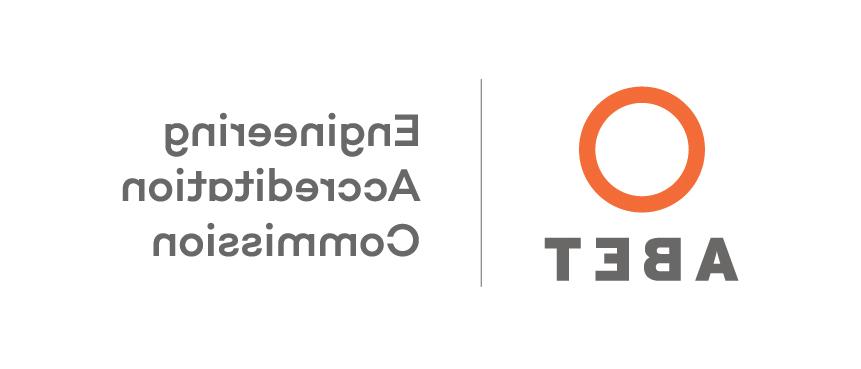Support Page Content
Accreditation & Assessment
- Mission: The mission of the Bachelor Science degree program in Electrical & Electronic Engineering (BSEEE) at CSUS is to provide an outstanding, hands-on education in Electrical Engineering.
- Goals: The goal of the EEE Program is to provide students with a high quality education that will transform students into professional engineers who are prepared to meet the needs of society and adapt to rapidly changing technology.
Accreditation
 The BSCE program is accredited by the Engineering Accreditation Commission (EAC) of ABET.
The BSCE program is accredited by the Engineering Accreditation Commission (EAC) of ABET.
Assessment Committee
Rohollah Moghadam (Chair)
Mohammed Eltayeb
Atousa Yazdani
2 year term. Fall 2024 - Spring 2026.
Meets: 1st and 3rd Friday every month. 11 a.m. - noon
EEE Program Educational Objectives
The undergraduate program in Electrical & Electronic Engineering is fundamental to the mission of the College of Engineering and Computer Science at CSUS. 5-years from graduation, graduates from our program will have the following:
- Core Knowledge: Our graduates will have active careers in Electrical and Electronic engineering, or be actively engaged in a related career path.
- Application of Knowledge: Our graduates will apply their knowledge and skills to solve practical engineering problems.
- Professionalism: Our graduates will demonstrate the professional skills, such as high ethical standards, effective oral and written communications, and teamwork, necessary to be productive engineers and to advance in their careers.
- Life-long Learning: Our graduates will continue to develop their skills and seek knowledge after graduation in order to adapt to advancing technology and the needs of society. This may be indicated by the graduate’s pursuit of an advanced degree or other formal instruction, and/or that the graduate has developed a professional specialty.
The objectives describe the features that are considered important in an outstanding education in Electrical Engineering.
The program educational objectives are consistent with the University Mission, which can be summarized in the following two quotes from the University Policy Manual: "The University’s mission is guided by fundamental values which reflect its identity as a public, regional, comprehensive, metropolitan university. Thus, California State University, Sacramento seeks to offer individuals the opportunity to realize their highest aspirations and become active and involved citizens for the good of the individual and society," and "We reaffirm the value of and need for education of the whole person in the tradition of a liberal undergraduate education. Building on the fundamental knowledge and skills acquired through a general education program, the University offers traditional liberal arts disciplines and professional studies which emphasize three critical curricular values - acquisition of knowledge, the development of critical thought processes, and the synthesis of knowledge - hallmarks of an educated person."
By preparing students to succeed in professional employment and/or graduate study in electrical engineering, the program offers individuals "the opportunity to realize their highest aspirations." By preparing students to identify, analyze, and solve practical engineering problems, the program emphasizes "the development of a critical thought process" and by preparing students to apply knowledge of Circuits, Communications, Control Systems, Microprocessors, Electromagnetics, and Power Systems to the design of electrical engineering projects, the program emphasizes "the acquisition and synthesis of knowledge." Finally, by preparing students to communicate effectively with their peers, other professionals, decision makers, and the general public in the conduct of their work, and to practice electrical engineering in a professionally responsible and ethical manner, the program enables graduates to "become active and involved citizens for the good of the individual and society."
The program educational objectives are also consistent with ABET educational criteria. The objectives provide for educating students to be able to conduct electrical engineering work (analysis and design) in a professionally responsible and ethical manner, and to be able to communicate the results of their work to all stakeholders.
Student Outcomes
-
An ability to identify, formulate, and solve complex engineering problems by applying principles of engineering, science, and mathematics
-
An ability to apply engineering design to produce solutions that meet specified needs with consideration of public health, safety, and welfare, as well as global, cultural, social, environmental, and economic factors
-
An ability to communicate effectively with a range of audiences
-
An ability to recognize ethical and professional responsibilities in engineering situations and make informed judgments, which must consider the impact of engineering solutions in global, economic, environmental, and societal contexts
-
An ability to function effectively on a team whose members together provide leadership, create a collaborative and inclusive environment, establish goals, plan tasks, and meet objectives
-
An ability to develop and conduct appropriate experimentation, analyze and interpret data, and use engineering judgment to draw conclusions
-
An ability to acquire and apply new knowledge as needed, using appropriate learning strategies.
Enrollment
| Students Enrolled | Spring 2017 | Fall 2017 | Spring 2018 | Fall 2018 | Spring 2019 | Fall 2019 | Spring 2020 | Fall 2020 | Spring 2021 |
|---|---|---|---|---|---|---|---|---|---|
| Undergraduate Students | 406 | 439 | 395 | 428 | 391 | 435 | 413 | 414 | 383 |
| Graduate Students | 61 | 68 | 55 | 50 | 41 | 49 | 49 | 42 | 51 |
| Department Total | 467 | 507 | 450 | 478 | 432 | 484 | 462 | 456 | 434 |
Degrees Conferred
| Student Graduating Year | 2014-15 | 2015-16 | 2016-17 | 2017-18 | 2018-19 | 2019-20 | 2020-21 |
|---|---|---|---|---|---|---|---|
| Bachelor's | 52 | 78 | 97 | 95 | 87 | 94 | 87 |
| Master's | 45 | 37 | 60 | 37 | 37 | 26 | 24 |
| Department Total | 97 | 115 | 157 | 132 | 124 | 120 | 111 |